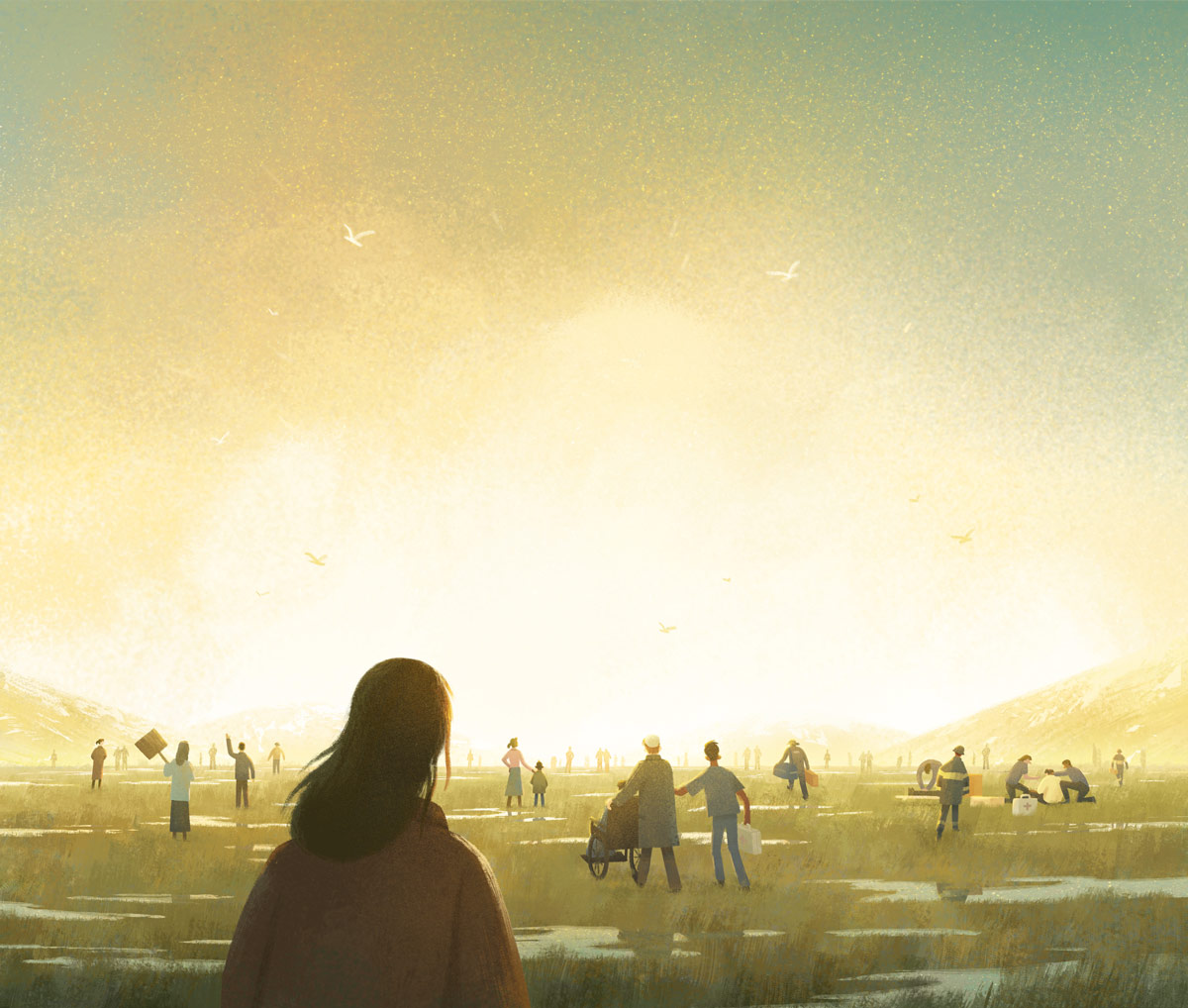
Faith Lights the Way
illustrations by Ileana Soon

N THE YEAR 2020, humanity experienced more tragedy and unease than at any other time in modern memory, enough for even the most eternal of optimists to begin losing hope.
While the new year brings new promises, new challenges also lie ahead, as the fight against COVID-19 continues in earnest and a divided country begins to heal.
But after such a dark moment in history, how do we see the light?
For these six Swarthmoreans, one solution lies in keeping the faith, whether in a higher power, in love, or in one another. Though all inspired by different spiritual backgrounds, they’re bonded by a common belief: that across time, and despite unimaginable hardships, humankind has persevered, together.
“I am heartened and hopeful that perhaps there are many more people standing up against systemic racism, dehumanization, hate, and violence than those who are perpetuating it,” Vajid says. “As much as suffering and injustice surround us, there is so much goodness, selflessness, and love embodied by humanity.”
She sees this daily in her spiritual work with students — a career path that started at Swarthmore. A religion and Islamic-studies major, Vajid found mentors in professors Tariq al-Jamil and Yamina Bouguenaya, who introduced her to aspects of her faith tradition that became formative to her College experience.
Vajid soon realized she sought to walk alongside other students on their religious journeys, the way al-Jamil and Bouguenaya had walked with her. In 2014, she joined Swarthmore as its first Muslim student adviser, a position now held by Umar Abdul Rahman (see sidebar, pg. 45).
Above all, Vajid’s faith gives her meaning for existence, she says, “and a lifelong journey towards knowing and drawing nearer to God who is Mercy, Love, Peace, and Everlasting.”
“We can address the devastation of our times by working toward something better,” she says. “That change can be within ourselves, it can be in our communities, it can be broader political change. We each have a different capacity, talent, calling, and gift, and if we respond to that and work on changing both ourselves and the realities around us, perhaps we can create something better.”
And as it rages on, we’re not just struggling with the loss of life, she says: “We’re struggling with the loss of life as we’ve known it.”
“Although the virus can kill us physically, the loss of hope is killing our spirits individually and collectively,” says Jones-Smith, senior pastor at Christ United Methodist Church in St. Petersburg, Fla. “It feeds our fear that everything is out of control. But let me tell you, God is in control.”
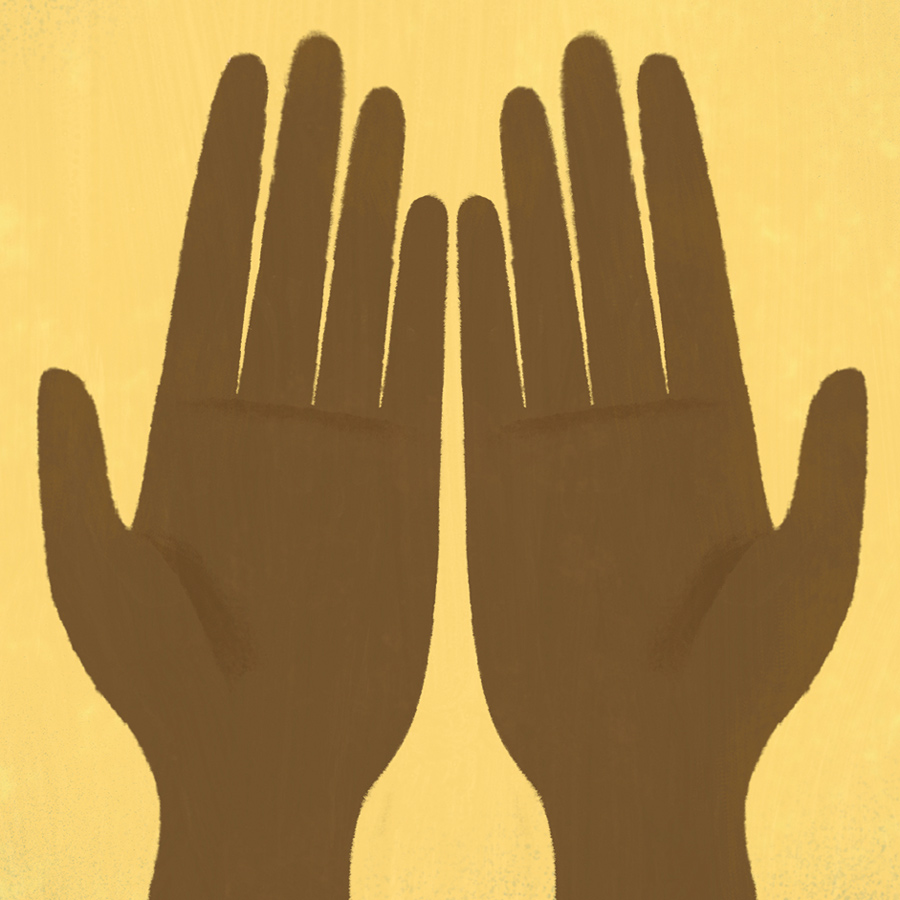
A spiritual experience surrounding a friend’s death led Jones-Smith to enter the seminary in 2001. Despite initial anxieties about leaving her law career, she now can’t imagine doing anything else.
“God puts us in places where we don’t expect to be,” she says. “God doesn’t call the qualified. God qualifies the called.”
In her ministry, Jones-Smith reminds congregants to look beyond the dark headlines to see the kind things that people are doing for one another.
“In the midst of all the devastation, tribalism, political rancoring, hate, and systemic racism,” she says, “we see signs of hope through our first responders, teachers, and others who provide essential services. They selflessly put their lives on the line to help others. We also see it in those who volunteer to provide meals, check on elderly neighbors, serve in food banks, and more.
“I truly believe that God uses difficult circumstances to draw us closer to God and each other.”
It’s a connection that Rudnick relishes, both as a religious leader and a former doctor.
“I spend the time to find out who that person is and find something in their life that reflects their ability to go forward,” says Rudnick, who practiced family medicine for 30 years before being ordained in 2011. “Something that’s important to them that will still be there tomorrow.
“Every time somebody thanks me it’s like, ‘Wait a minute, I got so much more from this than you did.’ I truly feel that.”
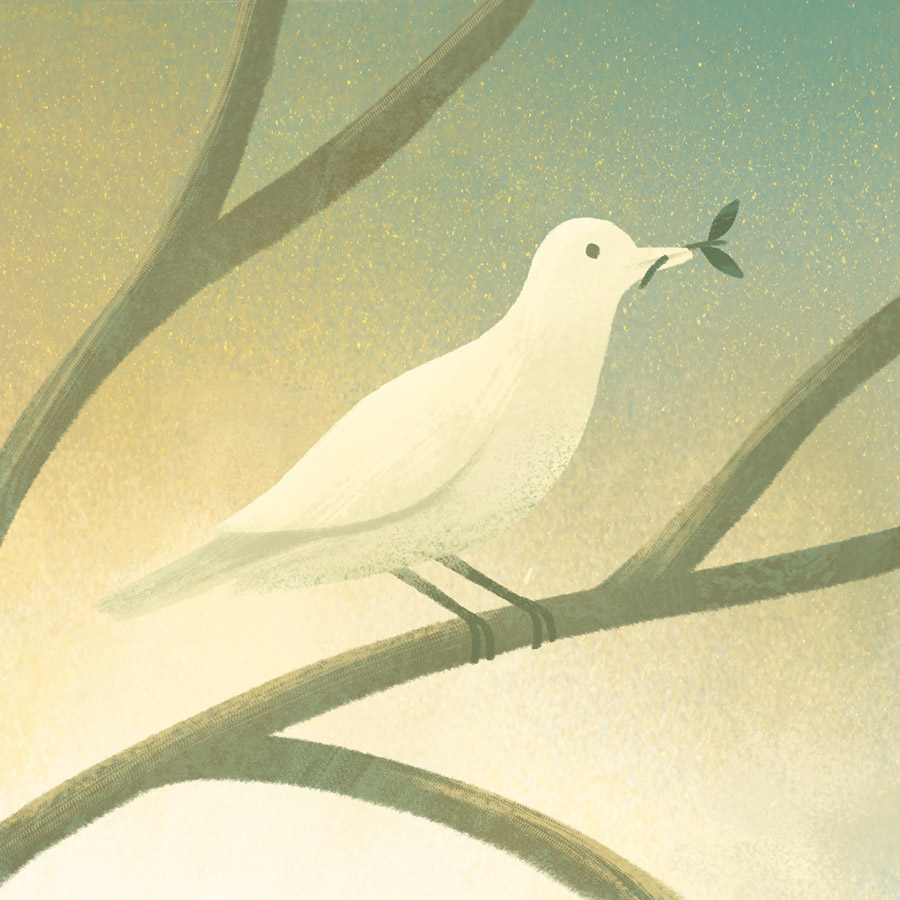
For inspiration, Rudnick points to the Old Testament story of Noah, who, through faith, survived the Flood.
“Most of the people I spend time with have had multiple tragedies in their lives,” he says. “They’ve had losses of parents, siblings, spouses for many of them, children for some, and they’ve come out on the other side. I think that’s a big piece.
“Each moment is new, and we decide how we react to it. So, if this one’s not so good, the next one, God willing, will be better.”
Listening Across Faiths
But the challenges presented by COVID-19 have led the College’s religious advisers to expand their outreach efforts, to engage with students both on campus and online and address the unique concerns Swarthmoreans are facing today.
“We offer a ton of opportunities to connect, and we make ourselves widely visible,” says Rabbi Michael Ramberg, Jewish student adviser and co-interim director of the Interfaith Center. The goal, he says, is for students to know the center is there for them as they need it.
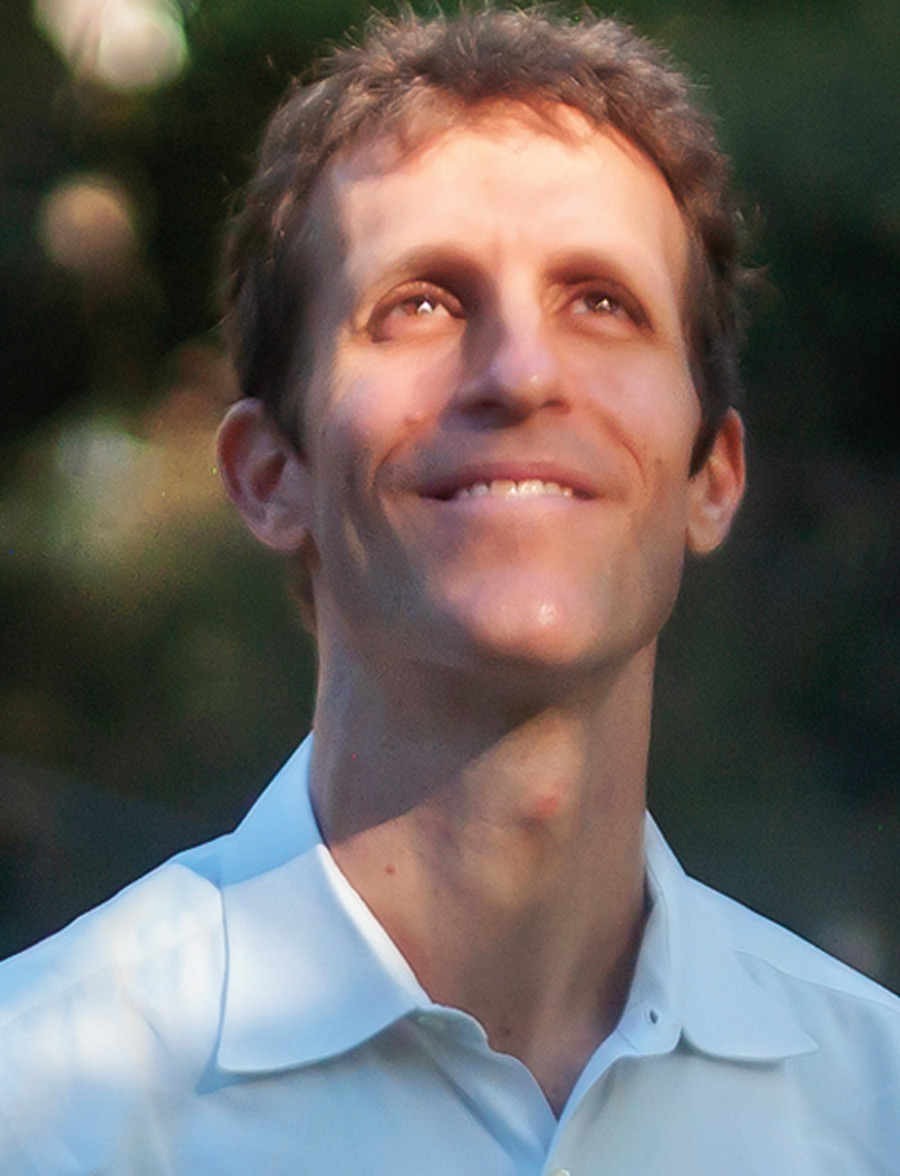
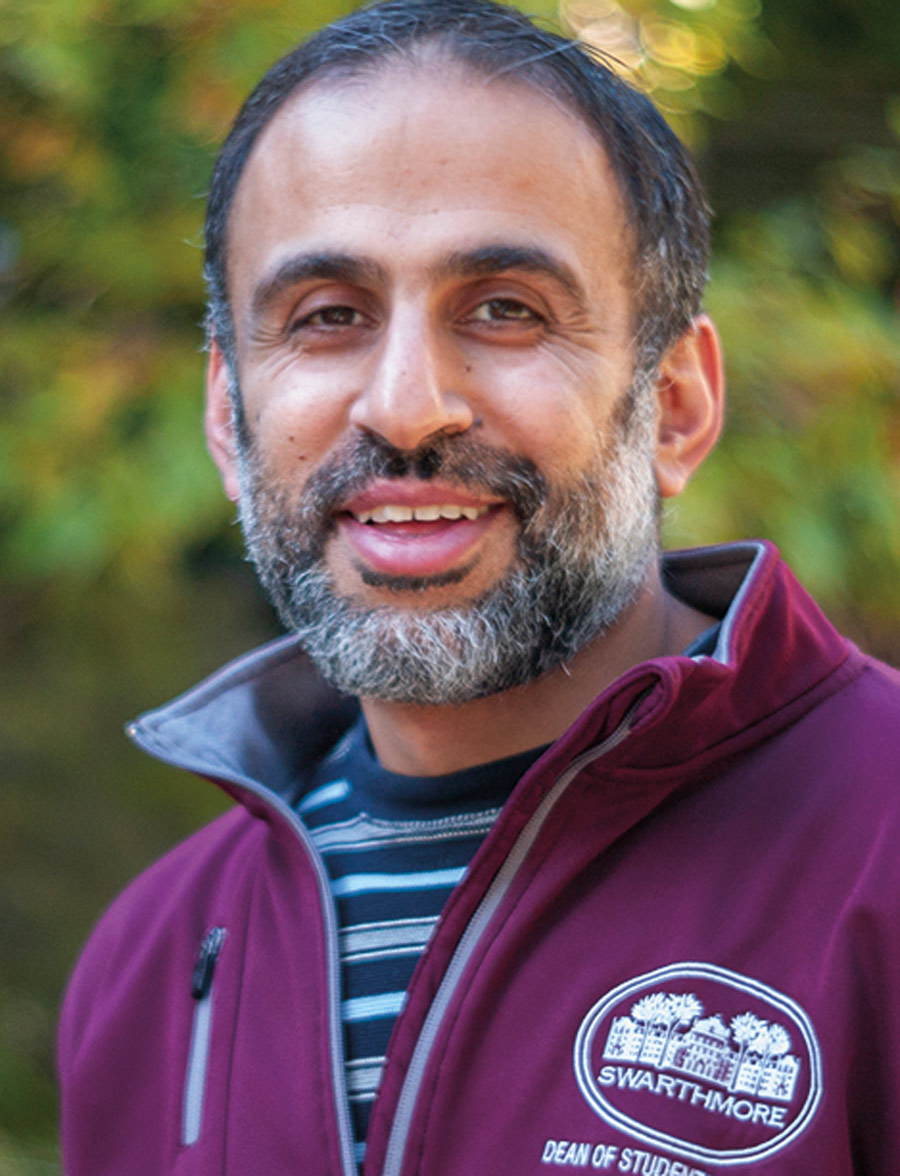
One successful new initiative has been the center’s daily 10-minute contemplative practice sessions. Held virtually and led by a different religious adviser each day — Ramberg and Abdul Rahman, along with Catholic adviser Lizzie Chapman, Buddhist adviser Hojin Park, Protestant chaplain Sabrina LaBelle, and InterVarsity Christian Fellowship staff worker Lindsey McAleese — these guided meditations offer the opportunity to slow down, breathe, and re-center.
Another program, proposed by a student Interfaith intern, is a support group for helping students deal with the intangible losses they’ve experienced as a result of the pandemic, whether those are missed personal milestones or on-campus experiences.
Perhaps the biggest initiative was the online panel discussion “Faith and Racial Injustice in a ‘Just’ Society.” The October event, which featured Swarthmore professors Nina Johnson and James Padilioni, among other speakers, addressed spiritual identity and perspectives among people of color amid the pandemic and demonstrations against racial injustice.
“Our programming always starts with the interns and religious advisers considering what our individual needs are,” says Interfaith intern Jayna Jones ’21, a neuroscience major and religion minor from Wilmington, Del. “Then we try to broaden those thoughts out to other students on campus to develop events that can be most impactful.”
For students struggling under the weight of this difficult era, Abdul Rahman suggests a change in focus.
“Something common in a lot of our traditions is the idea that even within a trial, there’s a blessing as well,” he says. “So try to search for the blessings that do exist during challenging times.”
Overall, Ramberg says he’s been amazed by the resilience of Swarthmore students. “The students are learning a lot of valuable lessons, and they’re really supporting each other,” he says. “The way that current students have extended themselves to welcome new students is very beautiful.
“Some people would say that’s a form of faith, too.”
— ELIZABETH SLOCUM
In college, as an international student, Lal found spiritual grounding through the Hindu Club of Swarthmore. Her interest in how others practiced religion led her to become an Interfaith intern, and likely played a role in her decision to major in anthropology and sociology.
These days, as life feels less under control, Lal stays grounded by intentionally focusing on all that’s unfolding around her — even the unpleasant realities. That allows her to find the silver linings.
“Distraction can be useful, but it’s also important to mourn in whatever way you can,” she says. “Whether it’s for the people you’ve lost or ideas about your own life or whatever it may be — just be present and process the things that you need to process.
Animistic Understanding
“All of creation and its many inhabitants are God in a variety of forms and disguises,” Wallace writes in the book, which earned the prestigious Nautilus Gold Award in the category of Religion/Spirituality of Western Thought for 2019.
“It’s a very different take on the Christian religion,” Wallace says, perhaps even heretical for those steeped in a more traditional view of Christianity. But Wallace suggests that Christianity is an Earth-based spirituality — including holy plants, sacred animals, and hallowed landscapes — rather than an otherworldly, heaven-bound religion. “There, you’ll see a rich environmental ethic, not a religion about a God who is distant and abstract and invisible, up there in the sky somewhere,” Wallace says. “It’s a way of rethinking Christianity as a way of life, consistent with the cultures and spiritualities of Indigenous peoples.”
Wallace points to the animistic understanding of the world embedded within Christianity, and sounds an urgent call for society to rediscover it. A more human-centric view of the religion has set the stage for our planetary ecological crisis, he told the progressive Christian magazine Broadview, and only by recognizing the spirit of God in nature can we begin to fix it.
— RYAN DOUGHERTY
In the midst of historically difficult times, says Kast, who teaches at a Jesuit high school in Omaha, Neb., God has continued to work. “Scripture reminds us that our limitations mean that we never need to have all the answers,” he says. “What we need, as a great prayer says, is to know the first step in front of us and to continue taking steps even if it’s cloudy and foggy and difficult to see a few yards ahead.”
Letting Their Light Shine
Mary Noland ’69 points to this Quaker adage when describing her faith, which she says is inseparable from her service. A religion major at Swarthmore, Noland has long been guided by Quaker ideals: as a teen concerned about civil rights in Athens, Ga.; as a lawyer who provided legal assistance to low-income residents; and now, as a member of Philadelphia’s Green Street Monthly Meeting, taking steps toward becoming more actively anti-racist, especially in light of 2020’s injustices.
“My faith helps me believe that if I allow ‘my little light to shine’ less obstructed by racism and all the other -isms — including intellectualism — that I will be more open to meeting ‘that of God in others,’” says Noland, who joined her racially inclusive faith community in reading and discussing two books this summer: Me and White Supremacy, by Layla Saad, and Caste, by Isabel Wilkerson. “If you believe, which I do, that there is that of God in everyone, then action is just the next step. It’s just what you do.”
A core tenet of Quakerism is to seek the guidance of that part of God within you, to direct how to live your life, says Wayne Finegar ’89, acting general secretary of Baltimore Yearly Meeting. And that, he adds, is inherently hopeful.
“It has the core assumption that it is possible to attain that degree of grace,” he says, “and if you assume that you’ve reached that point, that you’re going to make good decisions — ones that are positive for you and for the community and for the world.”
For Finegar, a former lawyer with a philosophy degree from Swarthmore, his Quaker faith is an ongoing question — “a continual ‘Is this the right answer? Is this the right choice for this situation?’
“And the permanent assumption is that the answer is no, it’s not the right choice — that you can always be better, you can always do better, you can always love more, you can always trust more.”
— ELIZABETH SLOCUM
“If there are people who are happy,” he says, “seek them out to share in the joy. If there are people who inspire you, look to see how you might be called in similar ways.”
To Kast, faith isn’t just a belief, it’s something he does. Quoting Hebrews, he calls it “the substance of things hoped for, the evidence of things unseen.”
A spiritual practice helps to contextualize those poisons, says Bays, co-founder and co-abbot of Great Vow Zen Monastery in Clatskanie, Ore. “It doesn’t matter if your foundation is that God is trying to send us a message about how we’re not being good stewards of his creation, or whether you’re Wiccan and it’s Mother Earth crying out, ‘Stop, stop, stop.’ In Buddhist practice, we look to our mind as the cause of human suffering.”
The Zen tradition, she says, is based on silent meditation, which helps people look inward to see the mischief their mind creates. By clearing the mind of tangled thoughts and the heart of confusion, “then wisdom and compassion shine through.”
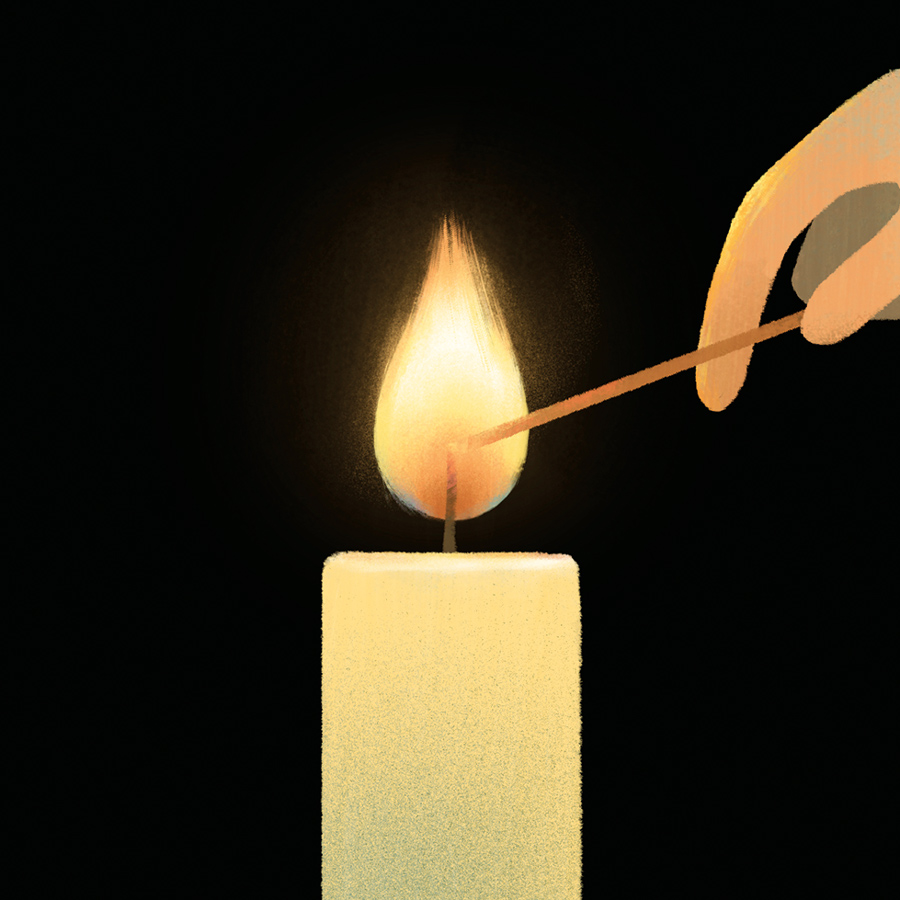
These days, as a Zen teacher, Bays helps others make sense of the world’s senselessness. One way is by recognizing the Buddhist tenet of impermanence, that nothing is meant to last forever. Another is to realize that we’re all interlocked, she says: “Everything that I do influences the whole.”
Yet she says there’s another force that can compel people into action, into working toward the benefit of the greater good. That is love.
“If I can be peaceful and loving in my mind and heart and find my place to do good in the world, then that’s enough,” Bays says.
And if others could do the same, she adds, then that would be even better.
At its core, faith provides hope: a belief that things will never be perfect, but that they can improve. That there’s a goodness in people and an eagerness to help. That humanity can unite for a brighter future.
By confronting racial injustice and heeding the call to help others; by acknowledging what’s been lost yet recognizing what’s left to gain; by taking a breath and realizing that this, too, shall pass, then perhaps our faith in humanity can be restored.
Because across distance and demographics and the spiritual divide, at the heart of faith is love.